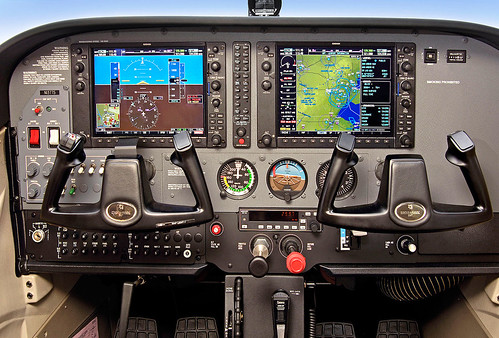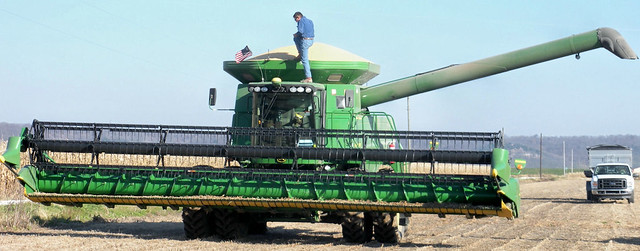FightSquared Drama
Tuesday, March 13th, 2012
This is probably as close as you’ll get to real drama at the Satellite 2012 show in Washington, DC. The annual show, dominated by geosynchronous communications satellite operators and their respective technical ecosystems, has a full conference schedule over several days. The conferences are pretty tame and not much is said beyond what’s on their PowerPoint pitches.
Enter the LightSquared and GPS interference fiasco. The event: a session entitled “LightSquared and GPS: Status Update and Lesson Learned.” The cast: an editor of Via Satellite as the moderator (Jeff Hill) and four combatants: Dr. Javad Ashjaee, President & CEO, JAVAD GNSS; Brock Butler, Director, Location Technology, Spirent; Jeff Carlisle, Executive Vice President for Regulatory Affairs and Public Policy, LightSquared; Jason Rademacher, Senior Counsel, Dow Lohnes PLLC; Bronson Hokuf, Principal Engineer, GPS Systems, Garmin Intl.
So who gets the prize? Nobody, as chronicled by Debra Baker of sister publication Communications Technology:
Despite the wrangling between the GPS industry and nationwide satellite broadband wannabe LightSquared being on the front burner inside the Beltway, it was not a standing-room-only group at this morning’s “LightSquared and GPS: Status Update and Lesson Learned” panel at Satellite 2012.
And it wasn’t much of a status update or a lessons-learned commentary. Rather, it was more of a marketing ploy by one panelist, a reiteration of test results from two others, and some pointed looks between LightSquared’s regulatory guy and a senior lawyer from Dow Lohnes who speaks FCC.
According to Javad Ashjaee, president & CEO of JAVAD GNSS, which last fall was tapped by LightSquared to develop a system that would eliminate interference issues for high-precision GPS devices related to the deployment of LightSquared’s proposed nationwide LTE network and, thus, heal its headache at the FCC, that job has been completed. In fact, any problems that had been caused by interference to such devices were the fault of the GPS industry itself and not by LightSquared’s business plan.
Ashjaee proclaimed that high-precision GPS device makers have known for several years that their gear was susceptible to interference but have chosen to do nothing to modify their filters. He said his company performed four tests with its new filter on 14 different GPS receivers, and no technical flaws were found. As such, he now wants at least his 2 mm by 2 mm filter to be included in all GPS devices.
He also categorized as “scare tactics” any aviation-industry talk of planes and helicopters going down due to interference from LightSquared’s proposed service. “LightSquared is tilted down 60 degrees and will have no effect on plans,” Ashjaee said. “It’s all over. There is no effort (by the aviation industry) to find a solution. They have grouped together to stop LightSquared. $14 billion in investment will be lost.”
Speaking for neutral-party tester Spirent, Brock Butler, director/Location Technology, said he’s tested LightSquared signals against GPS signals, and he believes today’s standards for receivers and for testing need to be better.
Spirent’s test results showed that most smartphones with GPS apps weren’t affected adversely by LightStream’s signals but, on the high-precision GPS receiver side, there’s a big problem.
Adds Bronson Hokuf, principal engineer/GPS Systems at Garmin, standards for consumer GPS gear are much less stringent than those for aviation, “but that makes sense.” He cited a National Space-Based Positioning, Navigation and Timing (PNT) report released a month ago that found 75 percent of the receivers it tested experienced interference from LightSquared, “and it would take years to make any changes.”
Hokuf also mentioned a January FAA report that said LightSquared is not compatible with FAA specs for low-altitude planes and helicopters.
Only Mildly Ruffled Feathers
It was during the Q&A session that things got moderately contentious. There appears to be some disconnect regarding if and when LightSquared ever was required by the FCC to develop an integrated satellite/terrestrial handset (which one attendee said would be a boon to disaster-relief efforts). LightSquared’ Jeff Carlisle, president for regulatory affairs and public policy, said his company never was asked, but Garmin’s Hokuf said there was a change to the company’s FCC paperwork that does require one.
And then there is the idea of moving LightSquared’s operation from the upper 10 megahertz of its spectrum to the lower 10 megahertz to avoid interference issues. Carlisle said that issue should have been raised earlier, and that LightSquared now may have to shell out an additional $1 billion “to accommodate GPS.”
On the other hand, Jason Rademacher, a senior attorney at Dow Lohnes, said it would be no simple task to retrofit the entire aviation fleet to accommodate interference from one service provider.
And the battle between the filter manufacturer and the GPS maker? JAVAD’s Ashjaee refused to let go of the idea that because 75 percent of filters are bad, technology can cure this without hampering the future. He challenged Garmin’s Hokuf to test the JAVAD filter with Garmin’s gear, but Hokuf said his company is under no obligation to do this.
“This filter is the only one JAVAD makes that is LightSquared-compatible; the rest of its products are not,” Hokuf said. “You don’t take one product and demand that the rest of the industry use it. And Garmin already builds to FAA standards.”
And aiming at Ashjaee, he pointedly concluded, “Since you think it is so easy, we will be happy to compete with you on the open market.”

